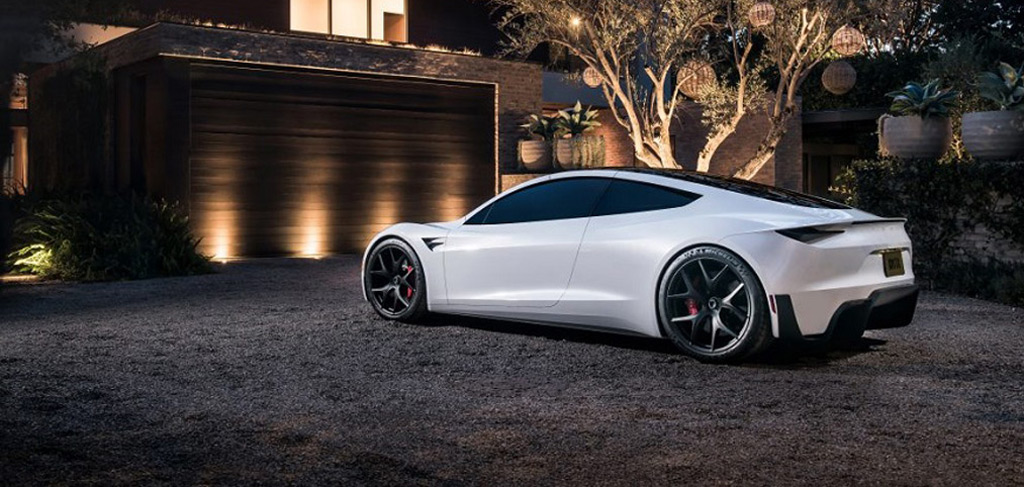When the second-generation Tesla Roadster was unveiled in 2017, Tesla CEO Elon Musk said the electric sports car would do 0-60 mph in 1.9 seconds. Shortly after the reveal, Musk upped the ante by hyping the idea that Tesla could add rockets to the Roadster to further quicken acceleration, or possibly make the car fly.
Those rockets could allow the Roadster to accelerate from 0-60 mph in just 1.1 seconds, according to Jason Fenske of Engineering Explained. That's based on the patchwork of public statements Tesla has made about the car over the past three years.
The proposed rocket upgrade would ditch the car's rear seats to make room for a tank holding compressed air at 10,000 psi. A pump driven by the battery pack would send compressed air to 10 thrusters positioned around the car. Some of those thrusters might be hidden behind the rear license plate, according to a Musk tweet.

2020 Tesla Roadster
The advantage of rockets is that they aren't limited by tire grip, Fenske said. The power produced by an internal-combustion engine or electric motor has to be channeled through the tires, and if it's too much power for the tires to handle, the car won't be able to accelerate any quicker. That's not an issue for rockets, which simply push the car along with thrust.
Fenske calculated that the Roadster's tires will handle acceleration of 1.44 g, while the rockets can produce 1.05 g of accelerative force. Plugging those values into the acceleration equation yields a 0-60 mph time of 1.1 seconds with rocket assist. However, that assumes the rockets will be able to run for a full 0-60 mph pull. It's also worth noting that, just like the home-built rocket cars of today, the feature likely won't be street legal.
At the time of the car's reveal, Tesla said the Roadster would start production in 2020, but it likely won't see an assembly line for several years. Tesla has more pressing issues, including a continued ramp up of Model Y production and the launch of the Cybertruck pickup truck, than a low-volume sports car. The Cybertruck isn't scheduled to start production until 2021, meaning the Roadster may have to wait until 2022, at the earliest. For now, watch the full video to learn more about the car's performance capabilities.